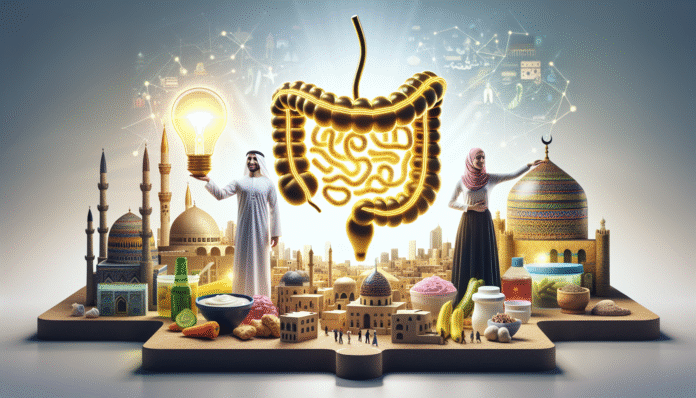In the heart of a region once rooted in ancient remedies and traditional diets, a modern wellness revolution is quietly brewing. From Dubai’s luxury wellness clinics to health startups in Riyadh, the Middle East is waking up to a powerful truth: gut health is mental health. And at the center of this growing awareness? Probiotics.

The Gut-Brain Connection: More Than Just a Trend
Science has firmly established the link between the gut and the brain — a two-way communication system known as the gut-brain axis. Your gut houses over 100 trillion microorganisms, and these microbes don’t just digest food. They produce neurotransmitters like serotonin and dopamine — chemicals that influence mood, stress, sleep, and even cognition.
Research shows that over 90% of serotonin — often dubbed the “happiness hormone” — is made in the gut, not the brain. When your gut is inflamed or imbalanced, mental health can suffer. Symptoms of anxiety, depression, brain fog, and fatigue often trace back to gut dysbiosis — an imbalance in gut bacteria.
A Middle Eastern Shift Toward Probiotic Wellness
In recent years, the Middle East has seen a surge in interest around gut health, largely driven by rising mental health awareness, the wellness tech boom, and a return to functional nutrition. Here’s how this trend is shaping up:
1. Probiotic Products Flooding Supermarkets
From kefir and kombucha to probiotic-enriched labneh and dairy-free yogurts, supermarket shelves in cities like Dubai, Doha, and Jeddah are now filled with gut-friendly products. Local food companies are innovating fast, catering to health-conscious Gen Z and millennial consumers who are actively seeking digestive and mental balance.
2. Health Tech Startups Entering the Microbiome Space
Digital health platforms in the UAE and Saudi Arabia are beginning to offer microbiome testing, personalized probiotic regimens, and gut-health coaching. These startups are blending AI with ancient health wisdom, delivering wellness plans rooted in both science and culture.
3. Mental Health Clinics Adopting Gut-First Approaches
Clinics and wellness centers in the region are integrating nutrition, probiotics, and gut healing protocols into mental health treatment plans. Therapists and psychiatrists are collaborating with nutritionists to address depression and anxiety from a gut-centric perspective.
Traditional Diets, Modern Problems
Historically, Middle Eastern diets were naturally rich in fiber, fermented foods, and herbs — all of which support a diverse gut microbiome. But the fast rise of processed food, sugar-heavy meals, and sedentary lifestyles has led to a spike in digestive issues, inflammation, and mood disorders.
Now, health experts across the region are urging a return to balance — not only with probiotics but also with prebiotics (fiber), lifestyle changes, and stress management techniques rooted in Islamic mindfulness (such as prayer and fasting).
Fasting, Faith, and the Microbiome
Interestingly, intermittent fasting, a practice embedded in Islamic culture, is being studied for its positive effects on the gut microbiome. Ramadan, observed by millions across the Middle East, has been shown to reduce inflammation, improve gut barrier integrity, and promote the growth of beneficial bacteria.
This spiritual tradition is now being recognized globally for its gut-brain health benefits — offering the Middle East a unique cultural advantage in the wellness world.
Final Thoughts: A Gut-Centric Wellness Future
The Middle East is not just catching up with global health trends — it’s shaping them. By embracing probiotics, reviving traditional foods, and integrating spiritual practices with science, the region is setting the stage for a more holistic approach to mental health.
As the science continues to evolve, one thing is clear: taking care of your gut isn’t just about digestion — it’s about clarity, calm, and emotional resilience. In the Middle East and beyond, the future of mental wellness may very well begin in the gut.







